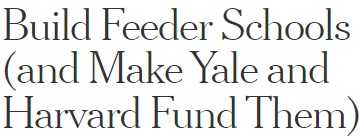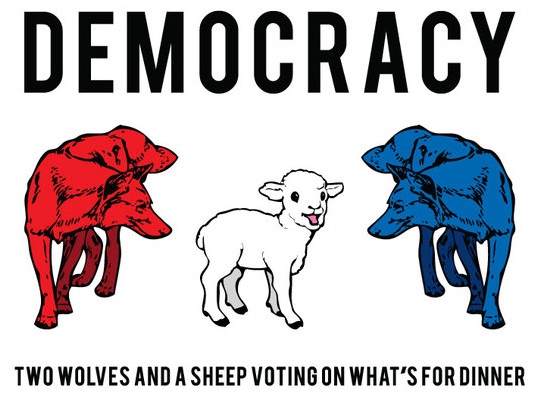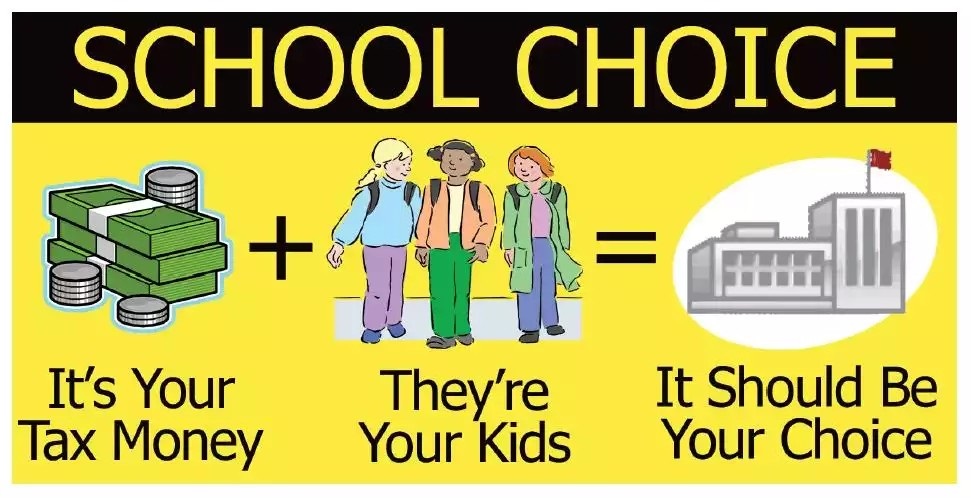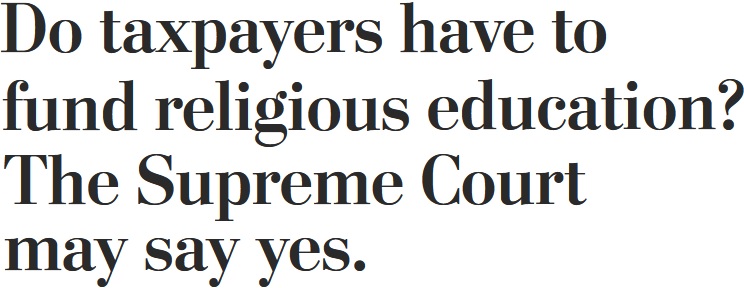—
Happy 111th Birthday, Milton Friedman, Your Wish Has Come True
Jay Greene / @jaypgreene / Jason Bedrick /@JasonBedrick / July 30, 2023

On Milton Friedman’s 111th birthday, we celebrate the growth of a free market in education he promoted and also heed his warning that those benefits can only be enjoyed if we avoid racial preferences, too. Pictured: Milton and Rose Friedman February 21, 1981. (Photo: Roger Ressmeyer, CORBIS, VCG/Getty Images)
COMMENTARY BY
Jay Greene is a senior research fellow in the Center for Education Policy at The Heritage Foundation.
Jason Bedrick is a research fellow with The Heritage Foundation’s Center for Education Policy.
On the occasion of his “eleventy-first” birthday, the hobbit Bilbo Baggins famously disappeared. On July 31, we celebrate what would have been the 111th birthday of another man who was diminutive in size but larger than life in spirit: Milton Friedman. Were he to reappear today, he would likely marvel at how much progress has been made on issues about which he cared so deeply.
In particular, Friedman would likely be amazed at the expansion of education freedom over the last year as well as the landmark Supreme Court decision to eliminate racial preferences in education.
In the past three years alone, more than 20 states have enacted new education choice policies or expanded existing ones, including eight states that are in the process of implementing Friedman’s vision of universal school choice.
And last month, the Supreme Court decided jointly in two cases brought by Students for Fair Admissions against Harvard and the University of North Carolina that the equal protection clause prohibits discrimination on the basis of race, including in college admissions.
For Friedman, these two issues were closely connected. He was convinced that black Americans could not obtain equality of opportunity unless they had access to school choice. But he also understood that if those educational opportunities were allocated with racial preferences, that system might help a few but would inevitably undermine access to quality options for most black Americans.
Friedman once remarked, “If you think that there is a way out of this by getting government to pass laws especially to benefit [black Americans] you are kidding yourself. That isn’t going to happen.”
The problem, he astutely observed, is that majorities pass laws and black Americans are a relatively small minority. It is unreasonable, he argued, to expect majorities to pass laws that would undermine their own interests while advancing the interests of a minority. As he put it:
Temporarily … affirmative action may benefit some blacks, some low-income people, but if you believe that Supreme Court decisions are going to be able to stop a majority of the population, which is prejudiced, from using this power to benefit themselves rather than the people who are disadvantaged, you’re kidding yourself. That’s not the way out.
Affirmative action may have elevated select members of minority groups, but it did so at the expense of others, particularly Asian Americans. According to author Kenny Xu:
In the case of Harvard, race is not simply used as a tiebreaker in admissions. A 2013 internal Harvard study revealed by the [Students for Fair Admissions] lawsuit showed that had Harvard only considered academics, Asians would make up 43% of Harvard’s student body. Adding legacy, athlete recruitment, “extracurriculars,” and a “personal” score lowered Asians to 26%. Finally, in the years the internal Harvard study looked at, Asians actually made up only 19% of the student body.
Even the supposed beneficiaries of racial preferences in college admissions are harmed by them in at least three ways. First, artificially advancing some applicants undermines incentives for achievement within their racial communities, as it detaches accomplishments from rewards.
Second, as the great economist Thomas Sowell (a former student of Friedman) observed, racial preferences lead to a “mismatch effect” that leaves “many blacks and Hispanics who likely would have excelled at less elite schools … in a position where underperformance is all but inevitable because they are less academically prepared than the white and Asian students with whom they must compete.”
And third, as Justice Clarence Thomas has argued, racial preferences “stamp [their beneficiaries] with a badge of inferiority” that “taints the accomplishments of all those who are admitted as a result of racial discrimination” as well as “all those who are the same race as those admitted as a result of racial discrimination” because “no one can distinguish those students from the ones whose race played a role in their admission.”
Friedman was very clear that meaningful progress depended on abolishing both racial discrimination and racial preferences:
We want a society in which people can celebrate their own special ethnic background. But that’s a very different thing from a society which somehow takes ethnic characteristics as a criterion for preference or lack of preference, from a society which moves away from the doctrine of color-blindedness to the doctrine of so-called affirmative action. That’s the problem.
There are many advocates within the school choice movement who agree with Friedman on the benefits of expanding educational freedom but somehow ignore his message about the harms of racial preferences. They favor private school choice, but only for urban school districts with large minority populations or only when programs are targeted toward low-income families. They favor charter schools, but only those that focus on minority students with “culturally responsive” models. They believe that students learn the most from teachers who share the same skin pigmentation and they seek preferential funding, training, and hiring of black teachers to accomplish this.
Friedman would be thrilled to see that all students, regardless of class, color, or creed, are now eligible for private school choice in eight states. But he would be aghast that some claiming to favor school choice would prefer that these opportunities be allocated with racial preferences.
Friedman had no objection to people maintaining strong racial and ethnic identities: “I believe it’s highly desirable for people to be able to pursue their own values, to have whatever ethnic values they want, provided they do it voluntarily and do not interfere with the freedom of others to do it also. We want a society of variety and diversity.”
But he would have objected vigorously to the idea that government policies, such as critical race theory in public school curriculum, matching the race of students to teachers, or racial targeting of education opportunities, were necessary to cultivate those group identities and achieve progress for members of those communities.
Friedman was once asked directly about this issue: “Don’t you think it’s through ethnic solidarity that many minority groups were able to make advances in the American society?”
To which Friedman replied, “Not in the slightest. If you look at the way in which ethnic minorities made advances, it was not through ethnic solidarity. It was through the free market.”
On Milton Friedman’s 111th birthday, we should celebrate the remarkable growth toward a free market in education that we have seen in recent years. But we should also heed Friedman’s warning that those benefits of freedom can only be enjoyed if we avoid the coercion of racial preferences.
Have an opinion about this article? To sound off, please email letters@DailySignal.com, and we’ll consider publishing your edited remarks in our regular “We Hear You” feature. Remember to include the URL or headline of the article plus your name and town and/or state.
Milton Friedman – Public Schools / Voucher System – Failures in Educatio…
Milton Friedman – Educational Vouchers
School Choice and Civil Rights, Part II
In Part I of this series, I made the simple point that school choice should be a civil rights issue.
This is because government schools do a scandalously bad job of educating children from poor communities and choice would give families the ability to escape that failing system.
And the people I cited in that column also made very good points about better K-12 schooling being the right way of preparing more minority children to successfully advance to the next level, especially if they want to attend elite colleges.
Which is a good reason to now look at a series of essays in the New York Times on “How to Fix College Admissions Now.”
Professor Roland Fryer, an economics professor at Harvard, easily has the best piece. Here’s some of what he proposed.
…selective schools are planning to respond to its widely anticipated decision to end affirmative action…in part, by watering down their admissions standards, through policies like reducing or eliminating the role of standardized tests. …But this is precisely backward. Instead of making the admissions process shallow, elite colleges should deepen the applicant pool.The simplest, most direct way to do that is for these schools to found and fund schools that educate disadvantaged students. …They could fix the problem if they truly wanted to. Elite colleges could operate a network of, say, 100 feeder middle and high schools — academies that are open to promising students who otherwise lack access to a high-quality secondary education, in cities where such children are common because of high poverty rates and underperforming public schools. …he cost would be about $4 billion — about 2 percent of the League’s total endowments. This cost could be offset by fundraising specifically for the academies. One could even add three years of middle school without getting close to the $10 billion mark, if we believe intervention must start sooner.
Professor Fryer is correct on many levels.
- He’s right that better K-12 schooling is the smart way of getting more minority kids ready for college.
- He’s right that government schools obviously are incapable of doing the job.
- And he’s right that private schools are capable of producing much better results.
But what’s especially enjoyable about his column is that he’s asking elite colleges to put up or shut up. If they really care about better schooling and more diversity, they can take a small slice of their endowments to make it happen.
Given the rampant hypocrisy on the left, I won’t be holding my breath waiting for this to happen.
Censorship, School Libraries, Democracy, and Choice
A big advantage of living in a constitutional republicis that individual rights are protected from “tyranny of the majority.”
- Assuming courts are doing their job, it doesn’t matterif 90 percent of voters support restrictions on free speech.
- Assuming courts are doing their job, it doesn’t matter if 90 percent of voters support gun confiscation.
- Assuming courts are doing their job, it doesn’t matter if 90 percent of voters support warrantless searches.
That being said, a constitutional republic is a democratic form of government. And if government is staying within proper boundaries, political decisions should be based on majority rule, as expressed through elections.
In some cases, that will lead to decisions I don’t like. For instance, the (tragic) 16th Amendment gives the federal government the authority to impose an income tax and voters repeatedly have elected politicians who have opted to exercise that authority.
Needless to say, I will continue my efforts to educate voters and lawmakers in hopes that eventually there will be majorities that choose a different approach. That’s how things should work in a properly functioning democracy.
But not everyone agrees.
A report in the New York Times, authored by Elizabeth Harris and Alexandra Alter, discusses the controversy over which books should be in the libraries of government schools.
The Keller Independent School District, just outside of Dallas, passed a new rule in November: It banned books from its libraries that include the concept of gender fluidity. …recently, the issue has been supercharged by a rapidly growing and increasingly influential constellation of conservative groups.The organizations frequently describe themselves as defending parental rights. …“This is not about banning books, it’s about protecting the innocence of our children,” said Keith Flaugh, one of the founders of Florida Citizens Alliance, a conservative group focused on education… The restrictions, said Emerson Sykes, a First Amendment litigator for the American Civil Liberties Union, infringe on students’ “right to access a broad range of material without political censorship.” …In Florida, parents who oppose book banning formed the Freedom to Read Project.
As indicated by the excerpt, some people are very sloppy with language.
If a school decides not to buy a certain book for its library, that is not a “book ban.” Censorship only exists when the government uses coercion to prevent people from buying books with their own money.
As I wrote earlier this year, “The fight is not over which books to ban. It’s about which books to buy.”
And this brings us back to the issue of democracy.
School libraries obviously don’t have the space or funds to stock every book ever published, so somebody has to make choices. And voters have the ultimate power to make those choices since they elect school boards.
I’ll close by noting that democracy does not please everyone. Left-leaning parents in Alabama probably don’t always like the decisions of their school boards,just like right-leaning parents in Vermont presumably don’t always like the decisions of their school boards.
And the same thing happens with other contentious issues, such as teaching critical race theory.
Which is why school choice is the best outcome. Then, regardless of ideology, parents can choose schools that have the curriculum (and books) that they think will be best for their children.
P.S. If you want to peruse a genuine example of censorship, click here.
More Academic Evidence for School Choice
Since teacher unions care more about lining their pockets and protecting their privileges rather than improving education, I’ll never feel any empathy for bosses like Randi Weingarten.
That being said, the past couple of years have been bad news for Ms Weingarten and her cronies.
Not only is school choice spreading – especially in states such as Arizona and West Virginia, but we also are getting more and more evidence that competition produces better results for schoolkids.
In a study published by the National Bureau of Economic Research, Professors David N. Figlio, Cassandra M.D. Hart & Krzysztof Karbownikfound that school choice led to benefits even for kids who remained stuck in government schools.
They enjoyed better academic outcomes, which is somewhat surprising, but even I was pleasantly shocked to see improved behavioral outcomes as well.
School choice programs have been growing in the United States and worldwide over the past two decades, and thus there is considerable interest in how these policies affect students remaining in public schools. …the evidence on the effects of these programs as they scale up is virtually non-existent. Here, we investigate this question using data from the state of Florida where, over the course of our sample period, the voucher program participation increased nearly seven-fold.We find consistent evidence that as the program grows in size, students in public schools that faced higher competitive pressure levels see greater gains from the program expansion than do those in locations with less competitive pressure. Importantly, we find that these positive externalities extend to behavioral outcomes— absenteeism and suspensions—that have not been well-explored in prior literature on school choice from either voucher or charter programs. Our preferred competition measure, the Competitive Pressure Index, produces estimates implying that a 10 percent increase in the number of students participating in the voucher program increases test scores by 0.3 to 0.7 percent of a standard deviation and reduces behavioral problems by 0.6 to 0.9 percent. …Finally, we find that public school students who are most positively affected come from comparatively lower socioeconomic background, which is the set of students that schools should be most concerned about losing under the Florida Tax Credit Scholarship program.
It’s good news that competition from the private sector produces better results in government schools.
But it’s great news that those from disadvantaged backgrounds disproportionately benefit when there is more school choice.
Wonkier readers will enjoy Figure A2, which shows the benefits to regular kids on the right and disadvantaged kids on the left.
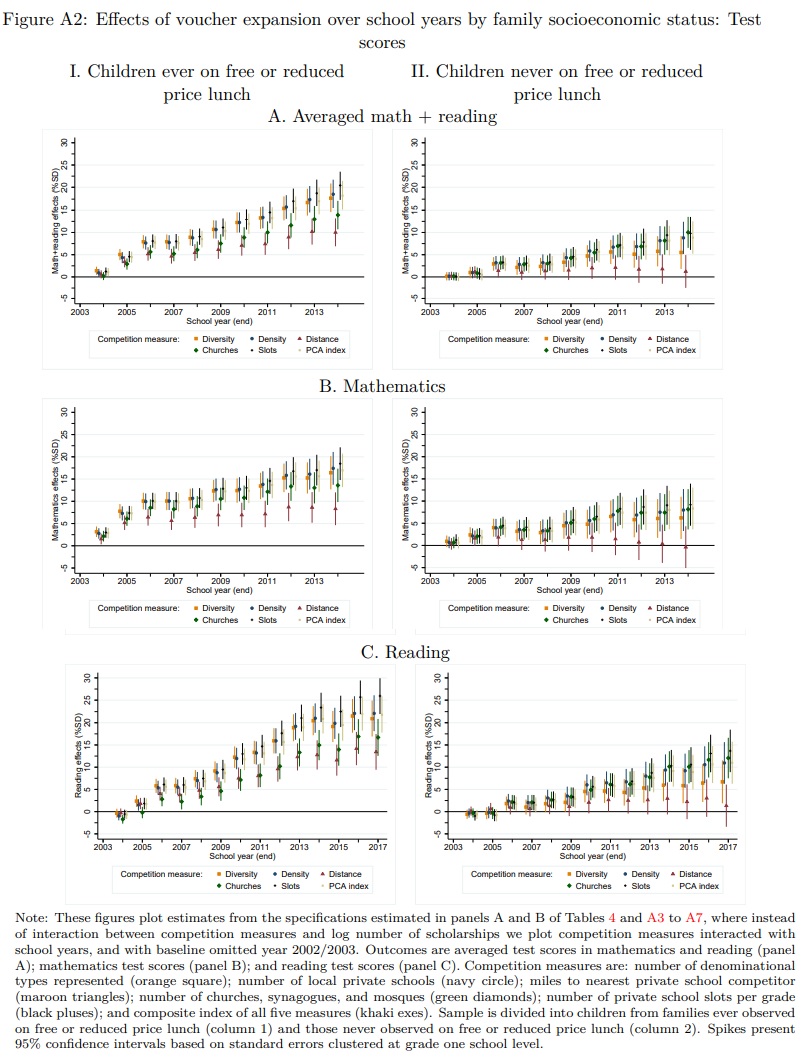
Since the study looked at results in Florida, I’ll close by observing that Florida is ranked #1 for education freedom and ranked #3 for school choice.
P.S. Here’s a video explaining the benefits of school choice.
P.P.S. There’s international evidence from Sweden, Chile, Canada, and the Netherlands, all of which shows superior results when competition replaces government education monopolies.
———-
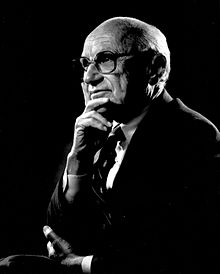
Milton Friedman chose the emphasis on school choice and school vouchers as his greatest legacy and hopefully the Supreme Court will help that dream see a chance!
Educational Choice, the Supreme Court, and a Level Playing Field for Religious Schools
The case for school choice is very straightforward.
- Monopoly government school systems cost a lot of moneyand do a bad job.The interests of the education bureaucracy rank higherthan the educational needs of kids. Poor families are especially disadvantaged.
- School choice puts parents in charge. Lots of evidence, including from overseas, shows choice improves educational outcomes. And private schools cost less, so taxpayers also win.
The good news is that there was a lot of pro-choice reform in 2021.
West Virginia adopted a statewide system that is based on parental choice. And many other states expanded choice-based programs.
But 2022 may be a good year as well. That’s because the Supreme Court is considering whether to strike down state laws that restrict choice by discriminating against religious schools.
Michael Bindas of the Institute for Justice and Walter Womack of the Southern Christian Leadership Conference make the case for a level playing field in a column for the New York Times.
In 2002, the Supreme Court held that the Constitution allows school choice programs to include schools that provide religious instruction, so long as the voucher program also offers secular options. The question now before the court is whether a state may nevertheless exclude schools that provide religious instruction. The case, Carson v. Makin, …concerns Maine’s tuition assistance program. In that large and sparsely populated state, over half of the school districts have no public high schools. If a student lives in such a district, and it does not contract with another high school to educate its students, then the district must pay tuition for the student to attend the school of her or his parents’ choice. …But one type of school is off limits: a school that provides religious instruction. That may seem unconstitutional, and we argue that it is. Only last year, the Supreme Court, citing the free exercise clause of the Constitution, held that states cannot bar students in a school choice program from selecting religious schools when it allows them to choose other private schools. …The outcome will be enormously consequential for families in public schools that are failing them and will go a long way toward determining whether the most disadvantaged families can exercise the same control over the education of their children as wealthier citizens.
The Wall Street Journal editorialized on this issue earlier this week.
Maine has one of the country’s oldest educational choice systems, a tuition program for students who live in areas that don’t run schools of their own. Instead these families get to pick a school, and public funds go toward enrollment. Religious schools are excluded, however, and on Wednesday the Supreme Court will hear from parents who have closely read the First Amendment.…Maine argues it isn’t denying funds based on the religious “status” of any school… The state claims, rather, that it is merely refusing to allocate money for a “religious use,” specifically, “an education designed to proselytize and inculcate children with a particular faith.” In practice, this distinction between “status” and “use” falls apart. Think about it: Maine is happy to fund tuition at an evangelical school, as long as nothing evangelical is taught. Hmmm. …A state can’t subsidize tuition only for private schools with government-approved values, and trying to define the product as “secular education” gives away the game. …America’s Founders knew what they were doing when they wrote the First Amendment to protect religious “free exercise.”
What does the other side say?
Rachel Laser, head of Americans United for Separation of Church and State, doesn’t want religious schools to be treated equally under school choice programs.
Here’s some of her column in the Washington Post.
…two sets of parents in Maine claim that the Constitution’s promise of religious freedom actually requires the state to fund religious education at private schools with taxpayer dollars — as a substitute for public education. This interpretation flips the meaning of religious freedom on its head and threatens both true religious freedom and public education.…The problem here is even bigger than public funds paying for praying, as wrong as that is. Unlike public schools, private religious schools often do not honor civil rights protections, especially for LGBTQ people, women, students with disabilities, religious minorities and the nonreligious. …If the court were to agree with the parents, it would also be rejecting the will of three-quarters of the states, which long ago enacted clauses in their state constitutions and passed statutes specifically prohibiting public funding of religious education. …It is up to parents and religious communities to educate their children in their faith. Publicly funded schools should never serve that purpose.
These arguments are not persuasive.
The fact that many state constitutions include so-called Blaine amendments actually undermines her argument since those provisions were motivated by a desire to discriminate against parochial schools that provided education to Catholic immigrants.
And it’s definitely not clear why school choice shouldn’t include religious schools that follow religious teachings, unless she also wants to argue that student grants and loans shouldn’t go to students at Notre Dame, Brigham Young, Liberty, and other religiously affiliated colleges.
The good news is that Ms. Laser’s arguments don’t seem to be winning. Based on this report from yesterday’s Washington Post, authored by Robert Barnes, there are reasons to believe the Justices will make the right decision.
Conservatives on the Supreme Court seemed…critical of a Maine tuition program that does not allow public funds to go to schools that promote religious instruction. The case involves an unusual program in a small state that affects only a few thousand students. But it could have greater implications… The oral argument went on for nearly two hours and featured an array of hypotheticals. …But the session ended as most suspected it would, with the three liberal justices expressing support for Maine and the six conservatives skeptical that it protected religious parents from unconstitutional discrimination.
I can’t resist sharing this additional excerpt about President Biden deciding to side with teacher unions instead of students.
The Justice Department switched its position in the case after President Biden was inaugurated and now supports Maine.
But let’s not dwell on Biden’s hackery (especially since that’s a common affliction on the left).
Instead, let’s close with some uplifting thoughts about what might happen if we get a good decision from the Supreme Court when decisions are announced next year.
Maybe I’m overly optimistic, but I think we’re getting close to a tipping point. As more and more states and communities shift to choice, we will have more and more evidence that it’s a win-win for both families and taxpayers.
Which will lead to more choice programs, which will produce more helpful data.
Lather, rinse, repeat. No wonder the (hypocritical) teacher unionsare so desperate to stop progress.
P.S. There’s strong evidence for school choice from nations such as Sweden, Chile, and the Netherlands.
Free To Choose 1980 – Vol. 06 What’s Wrong with Our Schools? – Full Video
https://youtu.be/tA9jALkw9_Q
Why Milton Friedman Saw School Choice as a First Step, Not a Final One
On his birthday, let’s celebrate Milton Friedman’s vision of enabling parents, not government, to be in control of a child’s education.
Wednesday, July 31, 2019


Kerry McDonald
EducationMilton FriedmanSchool ChoiceSchooling
Libertarians and others are often torn about school choice. They may wish to see the government schooling monopoly weakened, but they may resist supporting choice mechanisms, like vouchers and education savings accounts, because they don’t go far enough. Indeed, most current choice programs continue to rely on taxpayer funding of education and don’t address the underlying compulsory nature of elementary and secondary schooling.
Skeptics may also have legitimate fears that taxpayer-funded education choice programs will lead to over-regulation of previously independent and parochial schooling options, making all schooling mirror compulsory mass schooling, with no substantive variation.
Friedman Challenged Compulsory Schooling Laws
Milton Friedman had these same concerns. The Nobel prize-winning economist is widely considered to be the one to popularize the idea of vouchers and school choice beginning with his 1955 paper, “The Role of Government in Education.” His vision continues to be realized through the important work of EdChoice, formerly the Friedman Foundation for Education Choice, that Friedman and his economist wife, Rose, founded in 1996.
July 31 is Milton Friedman’s birthday. He died in 2006 at the age of 94, but his ideas continue to have an impact, particularly in education policy.
Friedman saw vouchers and other choice programs as half-measures. He recognized the larger problems of taxpayer funding and compulsion, but saw vouchers as an important starting point in allowing parents to regain control of their children’s education. In their popular book, Free To Choose, first published in 1980, the Friedmans wrote:
We regard the voucher plan as a partial solution because it affects neither the financing of schooling nor the compulsory attendance laws. We favor going much farther. (p.161)
They continued:
The compulsory attendance laws are the justification for government control over the standards of private schools. But it is far from clear that there is any justification for the compulsory attendance laws themselves. (p. 162)
The Friedmans admitted that their “own views on this have changed over time,” as they realized that “compulsory attendance at schools is not necessary to achieve that minimum standard of literacy and knowledge,” and that “schooling was well-nigh universal in the United States before either compulsory attendance or government financing of schooling existed. Like most laws, compulsory attendance laws have costs as well as benefits. We no longer believe the benefits justify the costs.” (pp. 162-3)
Still, they felt that vouchers would be the essential starting point toward chipping away at monopoly mass schooling by putting parents back in charge. School choice, in other words, would be a necessary but not sufficient policy approach toward addressing the underlying issue of government control of education.
Vouchers as a First Step
In their book, the Friedmans presented the potential outcomes of their proposed voucher plan, which would give parents access to some or all of the average per-pupil expenditures of a child enrolled in public school. They believed that vouchers would help create a more competitive education market, encouraging education entrepreneurship. They felt that parents would be more empowered with greater control over their children’s education and have a stronger desire to contribute some of their own money toward education. They asserted that in many places “the public school has fostered residential stratification, by tying the kind and cost of schooling to residential location” and suggested that voucher programs would lead to increased integration and heterogeneity. (pp. 166-7)
To the critics who said, and still say, that school choice programs would destroy the public schools, the Friedmans replied that these critics fail to
explain why, if the public school system is doing such a splendid job, it needs to fear competition from nongovernmental, competitive schools or, if it isn’t, why anyone should object to its “destruction.” (p. 170)
What I appreciate most about the Friedmans discussion of vouchers and the promise of school choice is their unrelenting support of parents. They believed that parents, not government bureaucrats and intellectuals, know what is best for their children’s education and well-being and are fully capable of choosing wisely for their children—when they have the opportunity to do so.
They wrote:
Parents generally have both greater interest in their children’s schooling and more intimate knowledge of their capacities and needs than anyone else. Social reformers, and educational reformers in particular, often self-righteously take for granted that parents, especially those who are poor and have little education themselves, have little interest in their children’s education and no competence to choose for them. That is a gratuitous insult. Such parents have frequently had limited opportunity to choose. However, U.S. history has demonstrated that, given the opportunity, they have often been willing to sacrifice a great deal, and have done so wisely, for their children’s welfare. (p. 160).
Sign-Up: Receive Kerry’s Weekly Parenting and Education Newsletter!
Voucher Programs Today
Today, school voucher programs exist in 15 states plus the District of Columbia. These programs have consistently shown that when parents are given the choice to opt-out of an assigned district school, many will take advantage of the opportunity. In Washington, D.C., low-income parents who win a voucher lottery send their children to private schools.
The most recent three-year federal evaluationof voucher program participants found that while student academic achievement was comparable to achievement for non-voucher students remaining in public schools, there were statistically significant improvements in other important areas. For instance, voucher participants had lower rates of chronic absenteeism than the control groups, as well as higher student satisfaction scores. There were also tremendous cost-savings.
In Wisconsin, the Milwaukee Parental Choice Program has served over 28,000 low-income students attending 129 participating private schools.
According to Corey DeAngelis, Director of School Choice at the Reason Foundation and a prolific researcher on the topic, the recent analysis of the D.C. voucher program “reveals that private schools produce the same academic outcomes for only a third of the cost of the public schools. In other words, school choice is a great investment.”
In Wisconsin, the Milwaukee Parental Choice Program was created in 1990 and is the nation’s oldest voucher program. It currently serves over 28,000 low-income students attending 129 participating private schools. Like the D.C. voucher program, data on test scores of Milwaukee voucher students show similar results to public school students, but non-academic results are promising.
Increased Access and Decreased Crime
Recent research found voucher recipients had lower crime rates and lower incidences of unplanned pregnancies in young adulthood. On his birthday, let’s celebrate Milton Friedman’s vision of enabling parents, not government, to be in control of a child’s education.
According to Howard Fuller, an education professor at Marquette University, founder of the Black Alliance for Educational Options, and one of the developers of the Milwaukee voucher program, the key is parent empowerment—particularly for low-income minority families.
In an interview with NPR, Fuller said: “What I’m saying to you is that there are thousands of black children whose lives are much better today because of the Milwaukee parental choice program,” he says.
“They were able to access better schools than they would have without a voucher.”
Putting parents back in charge of their child’s education through school choice measures was Milton Friedman’s goal. It was not his ultimate goal, as it would not fully address the funding and compulsion components of government schooling; but it was, and remains, an important first step. As the Friedmans wrote in Free To Choose:
The strong American tradition of voluntary action has provided many excellent examples that demonstrate what can be done when parents have greater choice. (p. 159).
On his birthday, let’s celebrate Milton Friedman’s vision of enabling parents, not government, to be in control of a child’s education.


Related posts:

“Friedman Friday” (“Free to Choose” episode 1 – Power of the Market. part 7 of 7)
Michael Harrington: If you don’t have the expertise, the knowledge technology today, you’re out of the debate. And I think that we have to democratize information and government as well as the economy and society. FRIEDMAN: I am sorry to say Michael Harrington’s solution is not a solution to it. He wants minority rule, I […] By Everette Hatcher III | Posted in Current Events, Milton Friedman | Edit | Comments (0)
“Friedman Friday” (“Free to Choose” episode 1 – Power of the Market. part 6 of 7)
PETERSON: Well, let me ask you how you would cope with this problem, Dr. Friedman. The people decided that they wanted cool air, and there was tremendous need, and so we built a huge industry, the air conditioning industry, hundreds of thousands of jobs, tremendous earnings opportunities and nearly all of us now have air […] By Everette Hatcher III | Posted in Current Events, Milton Friedman | Edit | Comments (0)
“Friedman Friday” (“Free to Choose” episode 1 – Power of the Market. part 5 of 7)
Part 5 Milton Friedman: I do not believe it’s proper to put the situation in terms of industrialist versus government. On the contrary, one of the reasons why I am in favor of less government is because when you have more government industrialists take it over, and the two together form a coalition against the ordinary […] By Everette Hatcher III | Posted in Current Events, Milton Friedman | Edit | Comments (0)
“Friedman Friday” (“Free to Choose” episode 1 – Power of the Market. part 4 of 7)
The fundamental principal of the free society is voluntary cooperation. The economic market, buying and selling, is one example. But it’s only one example. Voluntary cooperation is far broader than that. To take an example that at first sight seems about as far away as you can get __ the language we speak; the words […] By Everette Hatcher III | Posted in Current Events, Milton Friedman | Edit | Comments (0)
“Friedman Friday” (“Free to Choose” episode 1 – Power of the Market. part 3 of 7)
_________________________ Pt3 Nowadays there’s a considerable amount of traffic at this border. People cross a little more freely than they use to. Many people from Hong Kong trade in China and the market has helped bring the two countries closer together, but the barriers between them are still very real. On this side […] By Everette Hatcher III | Posted in Current Events, Milton Friedman | Edit | Comments (0)
“Friedman Friday” (“Free to Choose” episode 1 – Power of the Market. part 2 of 7)
Aside from its harbor, the only other important resource of Hong Kong is people __ over 4_ million of them. Like America a century ago, Hong Kong in the past few decades has been a haven for people who sought the freedom to make the most of their own abilities. Many of them are […] By Everette Hatcher III | Posted in Current Events, Milton Friedman | Edit | Comments (0)
“Friedman Friday” (“Free to Choose” episode 1 – Power of the Market. part 1of 7)
“FREE TO CHOOSE” 1: The Power of the Market (Milton Friedman) Free to Choose ^ | 1980 | Milton Friedman Posted on Monday, July 17, 2006 4:20:46 PM by Choose Ye This Day FREE TO CHOOSE: The Power of the Market Friedman: Once all of this was a swamp, covered with forest. The Canarce Indians […]
Milton Friedman The Power of the Market 1-5
Debate on Milton Friedman’s cure for inflation
If you would like to see the first three episodes on inflation in Milton Friedman’s film series “Free to Choose” then go to a previous post I did. Ep. 9 – How to Cure Inflation [4/7]. Milton Friedman’s Free to Choose (1980) Uploaded by investbligurucom on Jun 16, 2010 While many people have a fairly […]
By Everette Hatcher III | Also posted in Current Events | Tagged dr friedman, expansion history, income tax brackets, political courage, www youtube | Edit | Comments (0)
“Friedman Friday” Milton Friedman believed in liberty (Interview by Charlie Rose of Milton Friedman part 1)
Charlie Rose interview of Milton Friedman My favorite economist: Milton Friedman : A Great Champion of Liberty by V. Sundaram Milton Friedman, the Nobel Prize-winning economist who advocated an unfettered free market and had the ear of three US Presidents – Nixon, Ford and Reagan – died last Thursday (16 November, 2006 ) in San Francisco […] By Everette Hatcher III | Posted in Milton Friedman | Edit | Comments (0)
What were the main proposals of Milton Friedman?
Stearns Speaks on House Floor in Support of Balanced Budget Amendment Uploaded by RepCliffStearns on Nov 18, 2011 Speaking on House floor in support of Balanced Budget Resolution, 11/18/2011 ___________ Below are some of the main proposals of Milton Friedman. I highly respected his work. David J. Theroux said this about Milton Friedman’s view concerning […] By Everette Hatcher III | Posted in Milton Friedman | Edit | Comments (0)
“Friedman Friday,” EPISODE “The Failure of Socialism” of Free to Choose in 1990 by Milton Friedman (Part 1)
Milton Friedman: Free To Choose – The Failure Of Socialism With Ronald Reagan (Full) Published on Mar 19, 2012 by NoNationalityNeeded Milton Friedman’s writings affected me greatly when I first discovered them and I wanted to share with you. We must not head down the path of socialism like Greece has done. Abstract: Ronald Reagan […] By Everette Hatcher III | Posted in Milton Friedman, President Obama | Edit | Comments (1)
Defending Milton Friedman
What a great defense of Milton Friedman!!!! Defaming Milton Friedman by Johan Norberg This article appeared in Reason Online on September 26, 2008 PRINT PAGE CITE THIS Sans Serif Serif Share with your friends: ShareThis In the future, if you tell a student or a journalist that you favor free markets and limited government, there is […]


